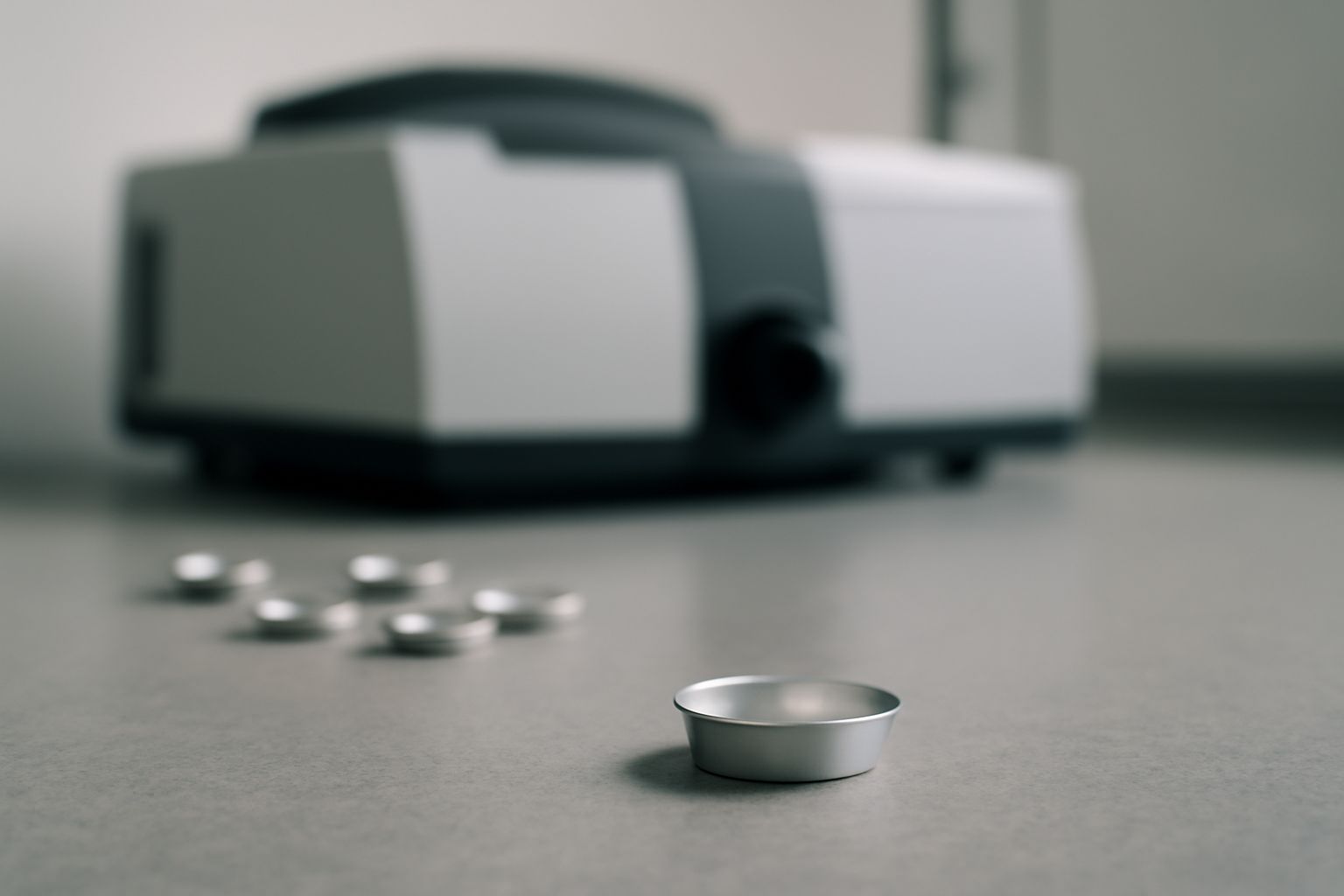Your cart is empty.
shop now
Your cart is empty.
shop now
Many labs get inaccurate DSC data or face equipment errors by buying low-quality pans with the wrong fit or material grade. Poor procurement hurts both budget and research reliability.
To properly procure high-purity aluminum pans for polymer DSC, focus on material purity (99.99%+), strict dimensional tolerances, trusted suppliers like MSE Supplies and PerkinElmer, and full compatibility with your specific DSC model.

I have streamlined procurement for many polymer labs. Double-checking all technical requirements and supplier qualifications avoids repeat orders, sample errors, and unexpected costs. Here is my process for efficient, risk-free sourcing of high-purity aluminum DSC pans.
Missing a critical technical detail when buying new pans leads to sample reaction, measurement drift, or failed DSC runs. I have seen this complicate method validation in even the best labs.
The top criteria are material purity (≥99.99%), flatness, uniform thickness, accurate inner/outer diameter, and consistent QC documentation. Confirm batch number and request certificates to avoid hidden risks.
| Factor | Why It Matters | Spec Target/Tip | Reference |
|---|---|---|---|
| Purity | Prevents baseline shift, reactions | 99.99% Al or higher | Aluminum details |
| Diameter/height | Fit and heat transfer | Within ±0.01mm | Instrument manual |
| Thickness | Consistent signal, avoids warping | Supplier batch data | Nature |
| QC certificate | Traceability, audit compliance | Batch with cert. | Supplier SOP |
Before every large purchase, I always inspect samples under a microscope for uniformity and use test runs on standard polymers to confirm pan performance matches expectations.
Poor supplier selection leads to delivery delays, inconsistent product, or hidden low-purity batches. Not all vendors match tight QC needs found in polymer labs.
Leading suppliers of high-purity aluminum pans for polymer DSC include MSE Supplies, PerkinElmer, and TA Instruments. REDTHERMO, as well as some local OEM-compatible sources, also offer dependable pans for many DSC brands.
| Supplier | Region | Main Strength | Model Coverage | External Review |
|---|---|---|---|---|
| MSE Supplies | USA/global | Wide selection, pure Al | NETZSCH, TA, PerkinElmer | ScienceDirect |
| PerkinElmer | Global | OEM, certified batches | All PerkinElmer DSC | Instrument catalog |
| REDTHERMO | China, worldwide | Custom/bulk supply | Multiple brands, OEM compatible | User review |
| TA Instruments | Global | Direct fit, tech support | All TA DSC | Supplier site |
I routinely compare costs and direct feedback from current users before placing bulk orders. Well-documented, trusted, and flexible suppliers make procurement smoother and keep lab downtime low.
Many researchers hesitate to pay more for high-purity pans, not seeing the real cost benefits in fewer retests, stronger data, or reduced instrument service calls.
The cost for high-purity aluminum pans is higher per unit ($1–$2), but the reduction in baseline noise, reruns, and risk saves more over time compared to basic grades. Support for bulk pricing exists with major vendors and custom suppliers.
| Pan Type | Approx. Cost/Unit | Performance Level | Long-Term Savings | Cost Reference |
|---|---|---|---|---|
| Standard Aluminum | $0.30–$0.80 | Basic, more reruns | Low | Lab usage data |
| High-purity Aluminum | $1–$2 | High, reliable data | High | ScienceDirect |
| OEM Certified | $2–$3 | Traceable, guaranteed fit | Very high | Instrument catalog |
I ask every supplier for detailed price breaks at volume, and I recommend tracking cost per successful test instead of only per-unit costs for a realistic budget plan.
Mismatched pans lead to lost samples, instrument jams, or drift in baseline due to improper heat transfer. Compatibility needs more than just matching a general model code.
Ensure pan size, shape, and lid type exactly fit your DSC model. Cross-check supplier specs with your instrument manual, and request samples or drawings for new batches before bulk orders.
| Instrument Brand | Pan Size/Code | Lid Type | Fit Notes | External Resource |
|---|---|---|---|---|
| TA Instruments | Standard, hermetic | Flat, crimped | Exact fit needed for automation | DSC Wiki |
| NETZSCH | Custom diameters | Flat, vented | Check with tray design | Instrument manual |
| PerkinElmer | Certified n=~6.5mm | Matched seal | Request OEM code before purchase | Supplier site |
| Mettler Toledo | Bulk, gold, or aluminum | Custom fit | Seek QC batch info | Supplier SOP |
Each time I use a new pan source or batch, I do a test run with a polymer standard and confirm fit, seal integrity, and thermal contact are all in spec before routine work begins.
Attention to purity, dimensions, supplier track record, and instrument fit ensures each high-purity aluminum pan produces high-quality DSC data and avoids costly purchasing errors in any polymer lab.
Contact technical support: info@redthermo.com